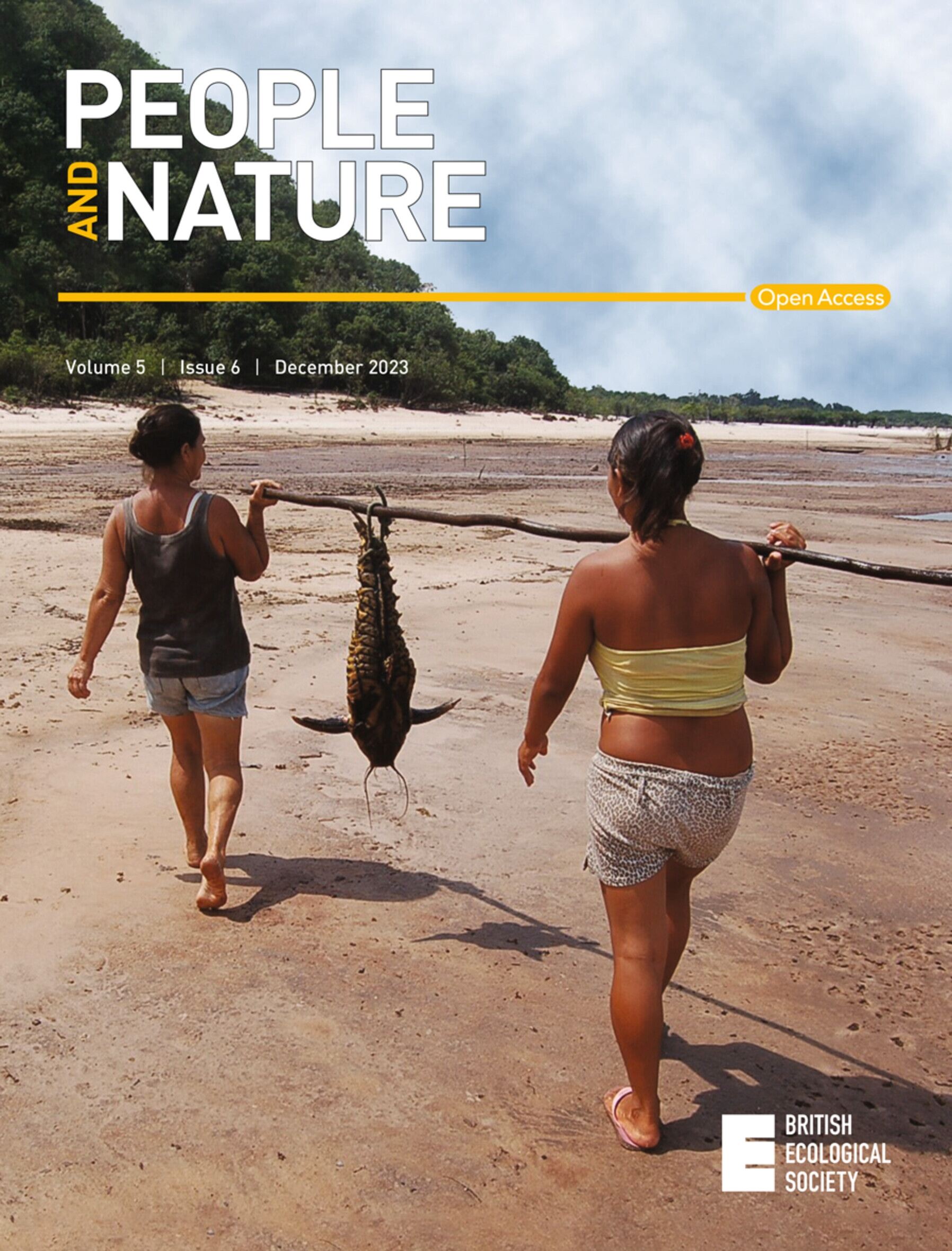Willingness of rural and urban citizens to undertake pollinator conservation actions across three contrasting European countries
IF 4.2
1区 环境科学与生态学
Q1 BIODIVERSITY CONSERVATION
引用次数: 0
Abstract
Over the last two decades, ecological and conservation studies on pollinator insects have increased significantly. However, scientific evidence alone is not enough to translate knowledge into policy and into changes in behaviour. To reduce the gap between scientific knowledge on conservation actions and their actual uptake, one should understand the socio‐psychological drivers of people's willingness to undertake these actions. Here, we investigated the socio‐psychological factors influencing individual behaviour in favour of conservation interventions for pollinators in rural versus urban environments across three European countries: Germany, Italy and the Netherlands. We administered an online questionnaire to 4541 respondents stratified by nationality, environment, age and gender. Despite regional differences in socio‐cultural and economic conditions, individuals from Germany, Italy and the Netherlands living in both rural or urban environments shared similar socio‐psychological drivers to protect pollinators. People intended to take action to protect pollinators when they felt morally obliged to, when their social environment supported pollinator protection, when they believed their individual behaviour had an impact, and when they engaged frequently in outdoor activities. Interestingly, specific values held towards pollinators, such as their right to exist, seemed much more important predictors of activating norms that promote conservation actions compared to increasing general environmental concern. In all countries, among the conservation actions, the most likely to be implemented was planting flowers, while one of the most unlikely was participating in monitoring activities. Synthesis and applications. People from three contrasting European countries living in both rural and urban landscapes were mostly driven by the same socio‐psychological factors to help pollinator insects. Therefore, our results offer several practical recommendations to promote pollinator conservation across Europe. First, conservation practitioners interested in pollinator conservation should pay greater attention to values specific to pollinators, as they seemed more important behaviour predictors than general care for the environment. Second, engaging people in conservation efforts can be accomplished by increasing awareness about the vital roles that pollinators play within ecosystems. Lastly, promoting simple nature‐based activities such as wildlife observation, and gardening can help foster a sense of connection to and appreciation for pollinators and pollination. Read the free Plain Language Summary for this article on the Journal blog.三个截然不同的欧洲国家的农村和城市公民采取保护授粉者行动的意愿
过去二十年来,有关传粉昆虫的生态和保护研究大幅增加。然而,仅有科学证据还不足以将知识转化为政策和行为变化。为了缩小保护行动的科学知识与实际采纳之间的差距,我们应该了解人们愿意采取这些行动的社会心理驱动因素。在这里,我们调查了影响个人行为的社会心理因素,这些因素有利于在三个欧洲国家的农村和城市环境中对传粉昆虫进行保护干预:在这里,我们调查了在三个欧洲国家(德国、意大利和荷兰)农村和城市环境中,影响个人保护传粉媒介干预行为的社会心理因素。尽管各地区的社会文化和经济条件存在差异,但德国、意大利和荷兰生活在农村或城市环境中的个人在保护传粉昆虫的社会心理驱动力方面具有相似性。有趣的是,与增加对环境的普遍关注相比,对传粉昆虫持有的特定价值观(如它们生存的权利)似乎对激活促进保护行动的规范更为重要。在所有国家的保护行动中,最有可能实施的行动是种植花卉,而最不可能实施的行动之一是参与监测活动。来自三个截然不同的欧洲国家、生活在农村和城市的人们大多受相同的社会心理因素驱使,帮助传粉昆虫。因此,我们的研究结果为促进整个欧洲的授粉昆虫保护提供了一些实用建议。首先,对授粉昆虫保护感兴趣的保护工作者应更多地关注授粉昆虫特有的价值观,因为这些价值观似乎比一般的环境关怀更重要。其次,可以通过提高人们对传粉昆虫在生态系统中所扮演的重要角色的认识来吸引人们参与保护工作。最后,推广简单的自然活动,如观察野生动物和园艺,有助于培养人们对传粉昆虫和授粉的联系感和感激之情。
本文章由计算机程序翻译,如有差异,请以英文原文为准。
求助全文
约1分钟内获得全文
求助全文
文献相关原料
| 公司名称 | 产品信息 | 采购帮参考价格 |
|---|

 求助内容:
求助内容: 应助结果提醒方式:
应助结果提醒方式:


